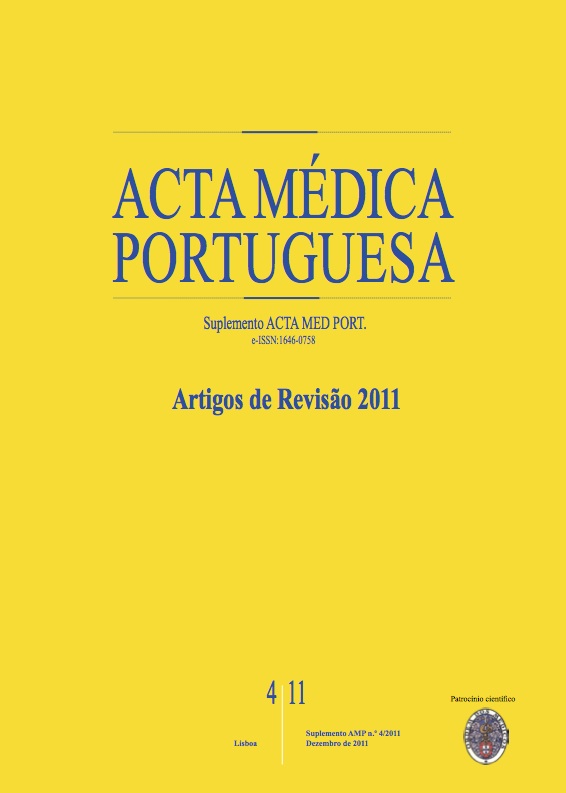Biomarcadores no líquido cefalorraquidiano para o diagnóstico precoce de doença de Parkinson.
DOI:
https://doi.org/10.20344/amp.1596Resumo
In current medical practice, the diagnosis of Parkinson's disease remains essentially clinical. This practice determines that the diagnosis of Parkinson's disease is done in an already advanced neuropathological stage of the disease. The aim of this study is to review the validity of cerebrospinal fluid protein biological markers in the early diagnosis of Parkinson's disease. The a-synuclein and DJ-1 proteins, due to their role in the hereditary Parkinson's disease, have been the most widely studied cerebrospinal biomarkers. Nevertheless, they have had divergent results mostly owing to different processing, identification and control of laboratory techniques. The new proteomic techniques, directed to the detection of multiple undifferentiated proteins in cerebrospinal fluid (eg. ceruloplasmin, chromogranin B, apoH), are promising. The early diagnosis of Parkinson's disease is imperious as it is a progressive neurodegenerative disorder that causes extensive morbidity. Most of current scientific research in Parkinson's disease is focused on the discovery of neuroprotective drugs. Thus, the definition of biomarkers for the early diagnosis of Parkinson's disease is highly relevant.Downloads
Downloads
Como Citar
Edição
Secção
Licença
Todos os artigos publicados na AMP são de acesso aberto e cumprem os requisitos das agências de financiamento ou instituições académicas. Relativamente à utilização por terceiros a AMP rege-se pelos termos da licença Creative Commons ‘Atribuição – Uso Não-Comercial – (CC-BY-NC)’.
É da responsabilidade do autor obter permissão para reproduzir figuras, tabelas, etc., de outras publicações. Após a aceitação de um artigo, os autores serão convidados a preencher uma “Declaração de Responsabilidade Autoral e Partilha de Direitos de Autor “(http://www.actamedicaportuguesa.com/info/AMP-NormasPublicacao.pdf) e a “Declaração de Potenciais Conflitos de Interesse” (http://www.icmje.org/conflicts-of-interest) do ICMJE. Será enviado um e-mail ao autor correspondente, confirmando a receção do manuscrito.
Após a publicação, os autores ficam autorizados a disponibilizar os seus artigos em repositórios das suas instituições de origem, desde que mencionem sempre onde foram publicados e de acordo com a licença Creative Commons









